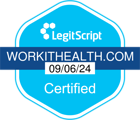This was my third year speaking to the senior class on retreat in the school where I work.
As usual, I shared my journey in recovery and the faith that came as a result. With 12 years sober, I am fortunate that my school trusts me to share a nearly full disclosure of my history with drugs and alcohol. I feel grateful for their trust.
It has been a long road. In fact, three years ago, when I first shared my story with a group of seniors, it was the first time many other faculty chaperones in the room had heard my story as well. I was able to say to them in full honesty, “I am about to share with you some things that no one else at the school knows about me.” It made for a powerful moment. If not for them, for my journey as a man in long term recovery from addiction and alcoholism.
“I was happy to have my recovery circle and my professional circle completely separate. Recovery was a thing I did after hours, on weekends.”
I can remember my interview to get the job. I only had a year and a half sober then. I certainly wasn’t eager to broadcast that I was in recovery. As receptive as those interviewing me may have been, it felt like a risk. I used vague language to cover up the gaps in my resume. I didn’t mention my rehab experience. I am lucky to have a clean record so there were no red flags in my background check.
The fact that I am in recovery surfaced in one conversation over the course of my first seven years at the school where I worked, and the teacher I spoke about it with left the following year.
Not that I cared.
I was happy to have my recovery circle and my professional circle completely separate. Recovery was a thing I did after hours, on weekends. No one knew that I worked a program of recovery or piled up day-after-day of continuous sobriety in their midst.
In the process of being a closeted man in recovery I learned a few things.
Firstly, no one cares that I don’t drink. I mean, tell someone you’re a sober alcoholic and you’ll have his attention, but when it comes to saying no to a drink at a Christmas party, people don’t mind.
I thought everyone would obsess over the fact that I was sober. But, as is true in so many cases, I am the only one who obsesses the way I do about alcohol. I thought saying yes to a drink was mandatory; turns out saying no to a drink is customary and acceptable.
“When I was newly sober, boundaries weren’t my thing. I was quite sloppy about what I said and to whom, and didn’t much care about the repercussions. As a sober man, I’ve learned the importance of boundaries. ”
What I mean to communicate to anyone who is insecure about outing themselves as a person in recovery at work is Do you really have to? You may not want to or need to. It may be more helpful if you don’t. It is your recovery. You recover however is best for you.
Now, your line of work may require you to identify as a sober person. Maybe you entertain clients for a living or travel with hard-drinking colleagues who are insistent you partake in after-hour celebrations.
If these or similar scenarios pertain to you then you should consider creating some healthy boundaries for yourself.
I know when I was newly sober, boundaries weren’t my thing. I was quite sloppy about what I said and to whom, and didn’t much care about the repercussions. As a sober man, I’ve learned the importance of boundaries. But I also had to learn that making boundaries does not mean stampeding over territory. What I mean is, I don’t have to tell people all the gritty details of why I don’t drink. While certain people may press me for the details, those people have no right to my reasons why. And should those same people have a problem with your withholding reasons, contact your union rep or human resources agent: no one can force you to drink, certainly not drugs.
With that written, I’d like to share with readers that outing myself as a man in recovery has become an incredible asset to my professional career.
It began when I already had nine years sober, mind you. Again, don’t let anyone else tell you how to walk this path; you must journey it for yourself. I couldn’t stay anonymous about recovery after starting a blog where I write and post articles about recovery.
I didn’t want the administration at my school to stumble upon it one day. My job is incredibly important to me. I love to teach and, now with three kids, I am building a life for my family around that career.
So I told who I thought were the two most important people to me at the school at that time: the principle and the coach who I worked under.
For me, the process felt like I was making amends. I asked for a private meeting and got to the truth quickly, unflinchingly, the way that only a near-ten-year sober person can.
I was shocked at how supportive they both were. I had the benefit of years of service as a reliable employee, I’m sure that helped. These were two men who had never seen me taken a drink.
“I have heard met people who suffer form addiction who, in order to stay clean, had to be honest about past wrong doings. It’s not easy, but it’s worth it.”
I am aware that not everyone has that luxury. A talent agency was my last employer while I was actively drinking and using. I have since made amends to individuals who work there over the phone as it’s not a good idea for me to return to Los Angeles where the agency is located.
Those phone calls were much different. They were hard. And, even then, I did not have to return to their employ.
Some of you reading this may be facing more dire circumstances. You may have to face some sort of music for the things you’ve said and done at the workplace. Take courage if that is the case.
I have heard met people who suffer form addiction who, in order to stay clean, had to be honest about past wrong doings. It’s not easy, but it’s worth it. I’ve even heard stories of sufferers who had to confess to wrongdoing only to go to jail. But they served their time without picking up and were released onto the free world as clean and sober individuals.
And that’s what matters most.









